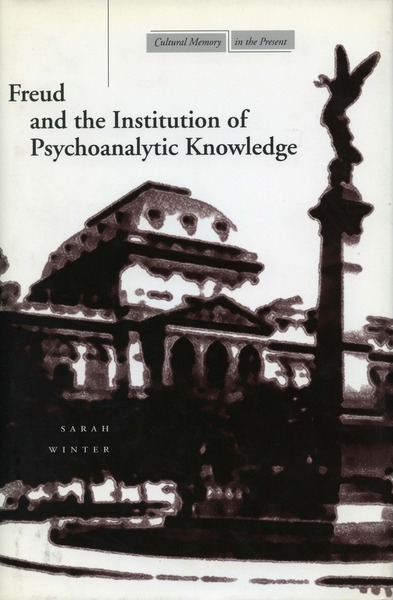
1999
408 pages.
from $45.00
Hardcover ISBN: 9780804733052
Paperback ISBN: 9780804733069
Ebook ISBN: 9780804780025
How did psychoanalytic knowledge attain a dual status both as common sense about the "inner life" among the educated and as seemingly indispensable psychological expertise during the first half of the twentieth century? Combining approaches from literary studies and historical sociology, this book provides a groundbreaking cultural history of the strategies Freud employed in his writings and career to orchestrate public recognition of psychoanalyis and to shape its institutional identity.
The author argues that a central element of Freud's institutionalization project was his theoretical appropriation of Greek tragedy. He derived cultural authority and legitimacy for psychoanalysis by adopting the generic conventions and "universal" relevance of Sophoclean tragedy, as well as the prestige of classical education, in his elaboration of the Oedipus complex. As the author shows, Lacanian psychoanalysis has followed Freud's lead in purveying an ahistorical reading of Sophocles' Oedipus plays to authorize its reimagining of the Oedipal subject.
The cultural salience of psychoanalytic knowledge also emerged in the contexts of the social prominence of professionalism and the academic consolidation of the social science disciplines at the turn of the century. Through a detailed examination of Freud's writings on culture, psychoanalytic technique, and the history of the psychoanalytic movement, the book delineates his attempts to establish psychoanalysis both as a profession and as an epistemologically essential master discipline by competing directly with research in philosophy, anthropology, sociology, and academic psychology.
In the current controversy over Freud's legacy, the author offers a critical assessment of the institutional opportunities and constraints that have conditioned the cultural fate of psychoanalytic knowledge in the twentieth century.
About the author
Sarah Winter is Associate Professor of English at the University of Connecticut.
"Winter's book is learned, original, forcefully written, and powerfully argued."
—J. Hillis Miller, University of California, Irvine
"[Winter's] task (well done!) is to study how we explain ourselves—specifically, the causes and consequences of Freud's way. . . . Winter gives clarity its due, integrating her materials and arguments carefully, crossing discipinary lines adroitly, and helping the readers with summaries pro re nata. . . . This book is a fine example of interdisciplinary scholarship."
—Bulletin of the History of Medicine
"In Freud and the Institution of Psychoanalytic Knowledge: Cultural Memory in the Present, Sarah Winter blends literary studies and historical sociology to provide a ground breaking cultural history of the strategies Sigmund Freud employed in his writings and career. . . . [It] is highly recommended, thought-provoking reading for students of psychology, psychoanalysis, and the history of medicine."
—Wisconsin Bookwatch
"Freud and the Institution of Psychoanalytic Knowledge is an exceedingly thoughtful and balanced book. Its depth and breadth are remarkable; the footnotes and bibliography alone make the book a scholarly treasure trove."
—Journal of the American Psychoanalytic Association